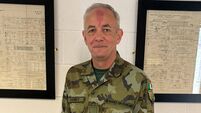Let’s debate a burning issue
During the past two years I have repeatedly invited the DCC executive to engage in an open debate regarding the wisdom of spending more than €300m on a technology that is being rapidly outdated. Invariably they have refused.
Our views reflect what we are learning from work that our Carbolea Centre continues to carry out with support from the Department of Agriculture, the Department of Natural Resources, Enterprise Ireland, the EPA and the EU.
We have learned that organic waste should be regarded as a great resource. It is claimed the energy from the incineration of Dublin’s organic waste will provide about 52mw of electricity. Up to 80% of that energy will be provided by the plastics (which of course can be profitably recycled) in the materials provided.
I would like to know what the net energy will be from the incineration of the wet, non-plastic containing incinerator feedstock. Our studies show the so-called wastes contain significant amounts of carbohydrates which, when subjected to second generation bio-refining processes, can provide a range of fuels, fuel additives and platform chemicals for manufacturing industries whose raw materials are now sourced in petroleum and petrochemicals.
In addition the residual materials, which we call the biorefinery residuals, when subjected to pyrolysis technologies, yield syngas, bio-oil, and biochar.
The syngas can be used as a source of energy or made into valuable chemical products. The bio-oil can be upgraded to diesel additive standard and the biochar enhances plant growth and resists biodegradation in the amended soils.
It is clear that the appropriate utilisation of Dublin city waste can give rise to significant employment opportunities. Equally important, it should not be necessary for Dublin residents to pay for the “disposal” of their so-called waste. Instead it should be possible to pay a gate fee for the feedstock.
Thus, as I see it, the incinerator will become a white elephant. The operators will not worry because I understand they are guaranteed not to lose money in the operation.
Again, I invite members of DCC to open debate on this vital subject matter.
Michael HB Hayes
Research Professor
Carbolea Group
CES Department
University of Limerick













